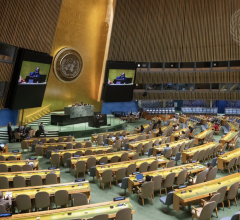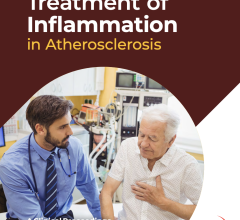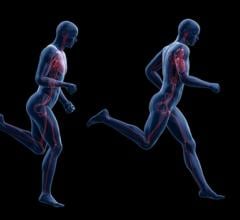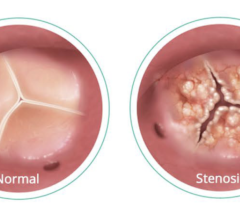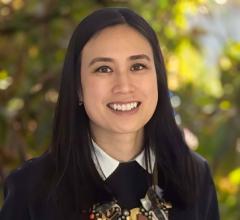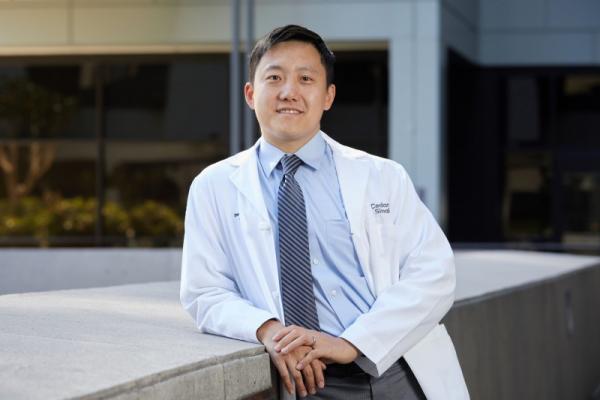
David Ouyang, MD. Photo by Cedars-Sinai
January 17, 2024 — One of the Smidt Heart Institute’s leading experts in artificial intelligence, David Ouyang, MD, has been named a deputy editor of NEJM AI — a newly established, peer-reviewed journal from the publishers of the highly respected, New England Journal of Medicine.
“While there is a tremendous amount of excitement around artificial intelligence, particularly as it pertains to healthcare, there remains a gap between research findings on limited historical datasets and bringing unproven algorithms to the clinic and patients,” said Ouyang, a faculty member in the Department of Cardiology in the Smidt Heart Institute at Cedars-Sinai and in the Division of Artificial Intelligence in Medicine.
The recently launched journal will spotlight clinical trials and practice-changing innovations, along with reviews, policy perspectives, and educational materials designed specifically for practicing physicians and clinician leaders interested in leveraging AI.
“There’s a keen interest in understanding and showcasing the results of artificial intelligence in clinical practice and deployment, particularly with an eye on patient impact,” said Ouyang.
At Cedars-Sinai, Ouyang’s research focus is on cardiac imaging as well as application of artificial intelligence and data science to healthcare. A statistician by training, Ouyang said he has always been fascinated by understanding, visualizing, and interpreting data. As a cardiologist, he is interested in the generation and assessment of clinical evidence and data.
“The Smidt Heart Institute and our broader academic enterprise have benefited greatly from David’s vast knowledge and expertise in large language models, artificial intelligence, imaging and cardiology,” said Christine M. Albert, MD, MPH, chair of the Department of Cardiology in the Smidt Heart Institute and the Lee and Harold Kapelovitz Distinguished Chair in Cardiology. “As an innovator in the field, we are particularly honored to have David represent Cedars-Sinai, personifying our commitment to lead in AI medical applications.”
Among his research achievements, Ouyang led the first-of-its-kind, blinded, randomized clinical trial of AI in cardiology. The study found AI was superior in assessing cardiac function in echocardiograms when compared with assessments made by sonographers. The findings were published in late 2023 in the peer-reviewed journal Nature.

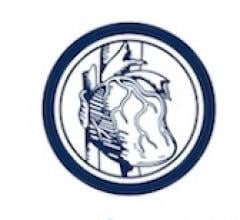
 April 10, 2025
April 10, 2025 


